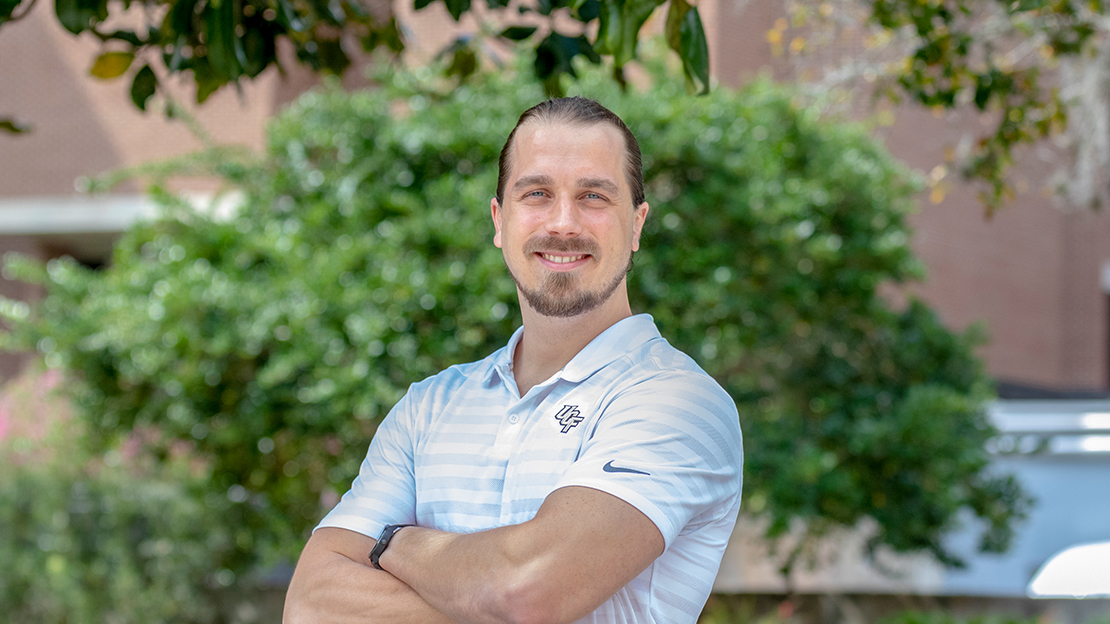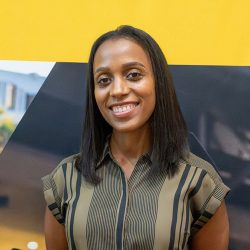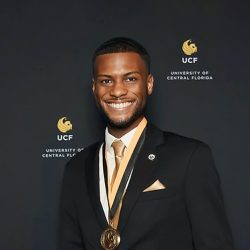Nicolas Clark
Rio de Janeiro, Brazil
College:
College of Community Innovation and EducationDegree Programs:
Exercise Physiology, Education PhDCollege of Health Professions and Sciences
Research Focus:
Understanding of non-invasive methods to evaluate fatigue thresholds during exercise.Nicolas Clark earned his undergraduate degree in physical education at the Federal University of Rio de Janeiro, after which he came to the United States to pursue his master’s degree in health and human movement with a focus on health promotion at Utah State University. He decided to attend UCF for his doctoral studies because he wanted to study under the leadership of David Fukuda, PhD, who Clark describes as not only a prolific scientist but also a great mentor.
In addition, to Dr. Fukuda, Clark also has an appreciation for Jeffrey Stout, PhD, Adam Wells, PhD, and Matthew Stock, PhD. Clark names a recent opportunity to lead a funded study under Dr. Fukuda and Dr. Wells as one of his most memorable moments at UCF. The study looks at the acute effects of caffeine on energy expenditure and fat metabolism in healthy adults, and they are currently in the process of writing a manuscript. Additionally, Clark points out participating in a journal club led by Dr. Stock, learning more about neuromuscular physiology literature from Dr. Stock, and taking a course on nutrition and metabolism from Dr. Stout as memorable parts of his time at UCF.
Clark says that he also enjoys the fact that he works in a state-of-the-art and highly productive lab, and enjoys that they have multiple studies each semester. Currently, Clark is involved in research that is focused on deepening the understanding of non-invasive methods to evaluate fatigue thresholds during exercise. Clark’s research specifically centers on the application of a model that aims to evaluate autonomic nervous system behavior during exercise and establish a relationship between other physiological markers, with the overarching goal to develop exercise methodologies to optimize physiologic adaptations in healthy and clinical populations.
Clark’s advice for his fellow graduate students is, “Love who you are and be grateful for what you have. Never compare yourself to others. Finding purpose in life is not always easy; the clearer we are about our feelings and needs, the more likely we are to find happiness.”
Clark is also a member of the American College of Sports Medicine and the National Strength and Conditioning Association, where he is part of a special interest group that focuses on nutrition, metabolism, and body composition. Additionally, Clark recently graduated from the Preparing Tomorrow’s Faculty program at UCF.
Clark graduated in the summer of 2021, he hopes to pursue an academic career in research and teaching. He says that his main goal is “to be able to share acquired research-based knowledge and its practical applications to help advance the strength and conditions profession around the world.” Clark hopes that once he becomes a professor, he will be able to become a mentor to his students and help them discover and maximize their strengths, just as his mentors have helped him.
Boniesta Melani
An affinity for languages and a passion for helping others communicate is what drives Boniesta Melani to pursue her field of study. As someone who has firsthand experience with learning...
Ashley Morris
From a young age, Ashley Morris has been passionate about mental health. She is conscious of how social and systemic inequalities can impede the ability to support loved ones with...
Itunu Ilesanmi
Itunu Ilesanmi has always been driven by finding a sense of purpose. When she was young, her parents taught her that fulfillment comes from helping others, a sentiment that has...
Brenden Brown
Since elementary school, Brenden Brown was confident that he would one day pursue a career in the healthcare industry. “I knew that I wanted to play an active role in...



